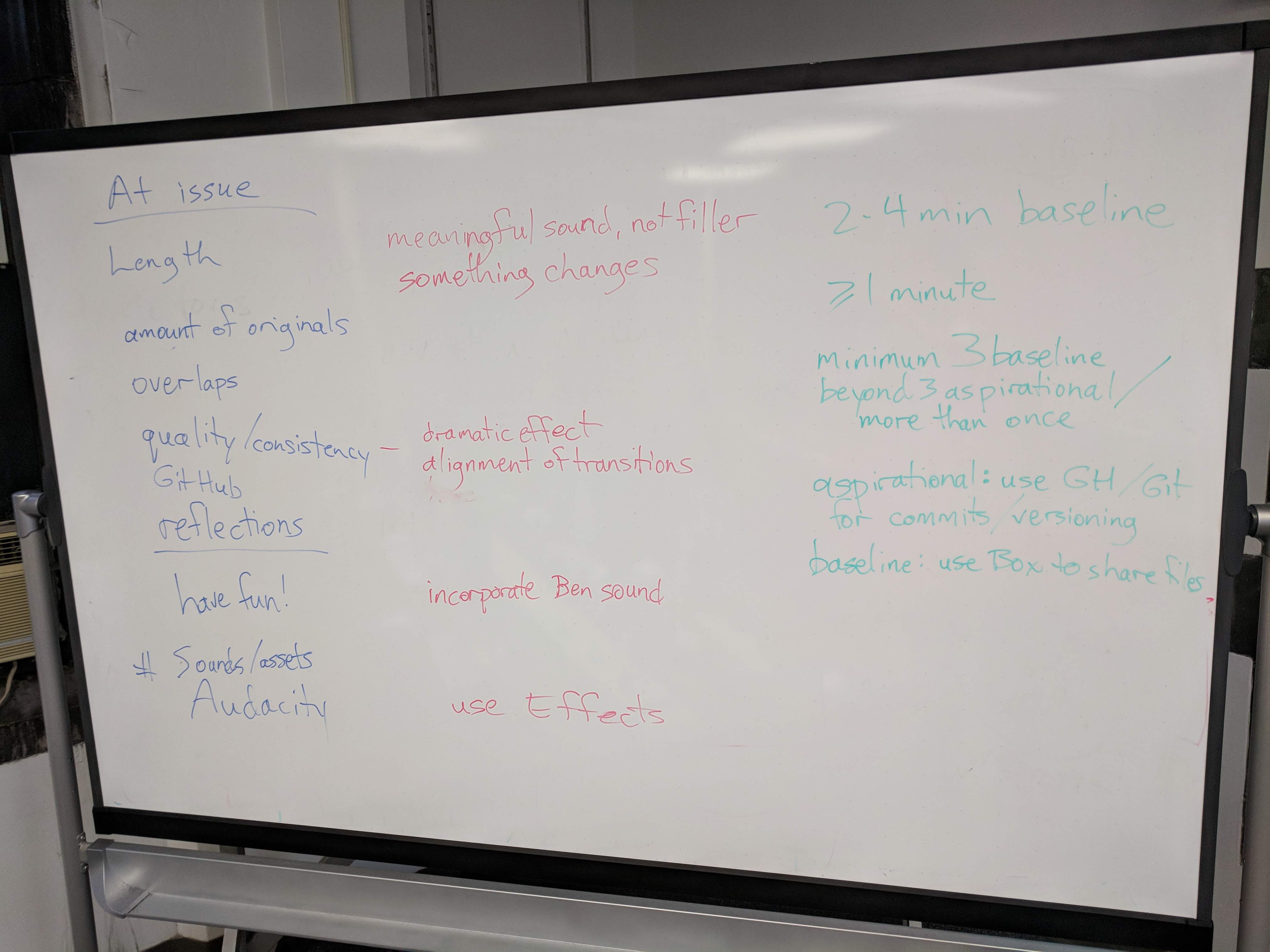Sound Criteria and Stretch Goals
Work to have done:
- Read through and practice the command-line git flow from Tuesday’s lesson: pull, add, commit, push
- Work on your soundscapes, and push a soundscape preview to GitHub: .aup file, data folder, screenshot, and text description, plus updated list of assets. mp3 optional but encouraged.
Plan for the Day:
- Reflective writing (5 min)
- Refresher on soundscapes we’ve liked (5 min)
- Gathering criteria (45 min)
- Sources, assets, permissions, citations (5-10 min)
- EXT: Studio and microconferences
1. Reflective writing (5 min)
2. Refresher on soundscapes we’ve liked (5 min)
Shift now in your writing to think about the blog posts on listening to soundscapes – or, if you haven’t read through them in a while, look at them quickly now with an eye toward what people are praising in the sound pieces: what seems to make a soundscape narrative work well? Jot down some notes.
3. Gathering criteria (45 min)
Primed now by that writing and thinking, I’m going to ask you to get in groups and brainstorm in pursuit of baseline and aspirational criteria for this unit.
3a. Let’s try these groups:

3b. Crowdsource ideas (10 min)
To bring all our notes together while allowing for real-time collaboration, use this google doc: bit.ly/miller2019spring.
3c. Discuss and Integrate (30 min)
Quickly read through the other groups’ notes, and as you see overlap, propose an official version for our list of shared criteria.
We’ll refine as a group, and repeat, and then come back and revise after Tuesday’s workshop.

4. Sources, assets, permissions, citations (5-10 min)
If time allows, let’s talk more about sources and attribution.
- Copyright
- Fair use
- purpose of copy
- nature of original
- substantiality of amount copied
- market impact
- Creative Commons
- CC0
- CC-BY
- CC-BY-NC
- ND
- SA
- Other licenses
How can we give credit to a source in audio?
- Audibly, directly in the sound file (usually at the end)
- In a prominently placed credits text that accompanies the sound file
For next time:
- Work to bring in a full draft: a solid attempt at a complete soundscape narrative, ideally at the target length. Rough edges are still welcome.
- Continue taking periodic screenshots and posting meaningful commit messages in Git
- Push a full draft, with the same four parts as the preview plus a SOURCES.md file crediting your sources and permissions/license to use them
- Bring headphones
- Also bring a camera (phone is fine)